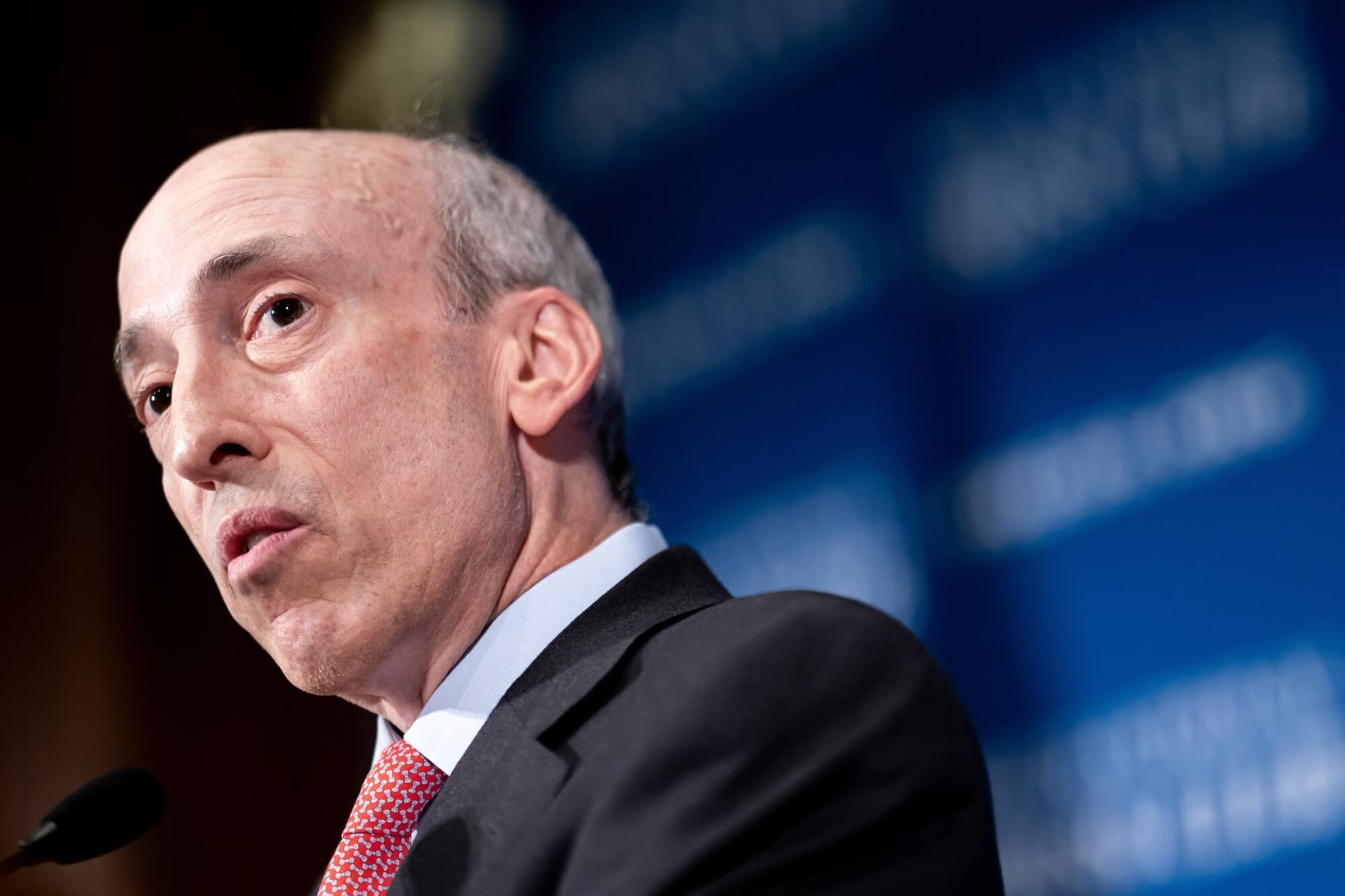Chair Gary Gensler reiterated worries regarding leveraged trading practices within the US Treasuries market. At a Tuesday conference hosted by the Securities Industry and Financial Markets Association in Washington, Gensler emphasized the potential risks in the financial system and advocated for several SEC proposals. These measures aim to mitigate these risks by instituting central clearing of all US Treasuries and increasing the regulation of trading firms, urging more of them to register with the agency as brokers.
Gensler highlighted the dangers posed by both bank and nonbank intermediaries employing leverage, particularly within prime brokerage relationships, underlining the potential instability when stress impacts the system. He cited the regional bank crisis in March 2023 as an example of such instability, signaling the need for regulatory measures.
Of specific concern to regulators is a strategy known as the basis trade, which relies on leveraging to capitalize on the price difference between Treasury futures and the underlying cash market. This practice has garnered significant attention from federal watchdogs due to the lack of transparency regarding the market’s risk exposure.

While executives at Citigroup Inc. and CME Group Inc., among others, have expressed support for the basis trade, emphasizing its role in providing liquidity for government bonds, this leveraged strategy is coming under increased international scrutiny. Entities such as the Bank of England and the Bank of International Settlements have expressed concerns about potential market volatility and systemic instability stemming from such a highly-leveraged market.
Gensler further discussed the financial sector’s move towards T+1 trade settlement and clearing. The industry faces a deadline within 200 days to transition equities trade settlement to just one day, down from the current two. Sifma President and CEO Kenneth Bentsen noted industry concerns regarding the ability of foreign exchange transactions to meet the deadline.
Acknowledging the industry’s successful past efforts in shortening the settlement cycle, Gensler urged caution regarding foreign-exchange trades, considering them a potential point of scrutiny during the transition.









